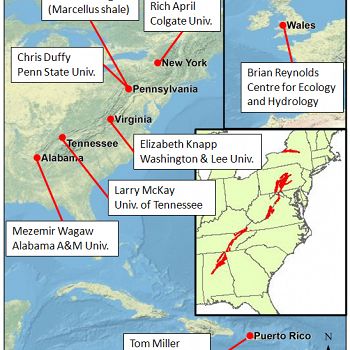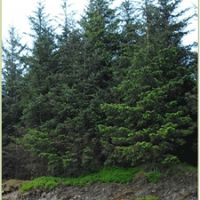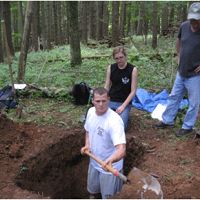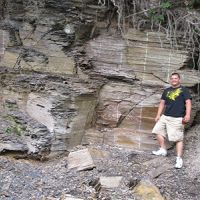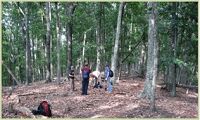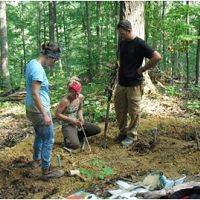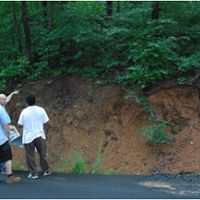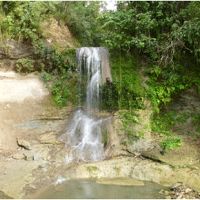Shale Transect
Sites with constant parent lithology (Silurian Rose Hill Formation) used to study the effects of climate on regolith formation, soil geochemistry, formation and erosion. The sites are operated in collaboration between Penn State and six partner institutions.
7-24 °C Temp
1000-2500 mm Precip
Areas within Shale Transect
-
Setting & Research
The Shale Transect sites collect data in conjunction with efforts at Shale Hills to study climatic influences on landscape evolution. Transect data are also used to study contrasting development of residual soil chemistry from the Rose Hill shale with other shale, such as the organic-rich Devonian Marcellus Shale.
Field work at each site will follow similar sampling and instrumentation to enable direct comparisons across sites. At each site, soils are sampled by auger and by soil pit from the soil surface to the bedrock by horizons and depth intervals. Soil pit descriptions include measurements of soil color, structure, texture and rock fragments as well as observations of redoximorphic or other unique features. Bulk density is also measured at several depths. Each site is outfitted with an instrument tower that includes a datalogger to continuously collect air temperature and humidity, solar radiation, wind speed, precipitation, and soil moisture, temperature and conductivity.
-
Data
Shale Transect - Meteorology, Air Temperature, Precipitation, Soil Moisture, Solar Radiation (2010-2014)
26 components • Shale Transect • Climatology / Meteorology, Hydrology • Dere, Ashlee; White, Tim -
Partner Organizations
Explore Further
